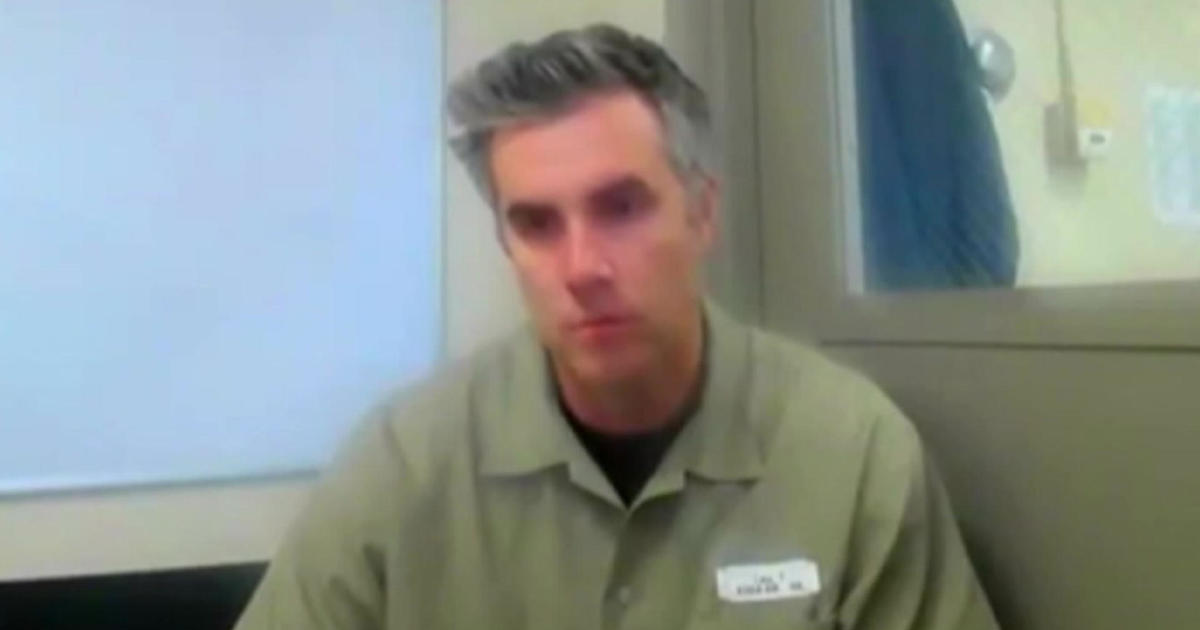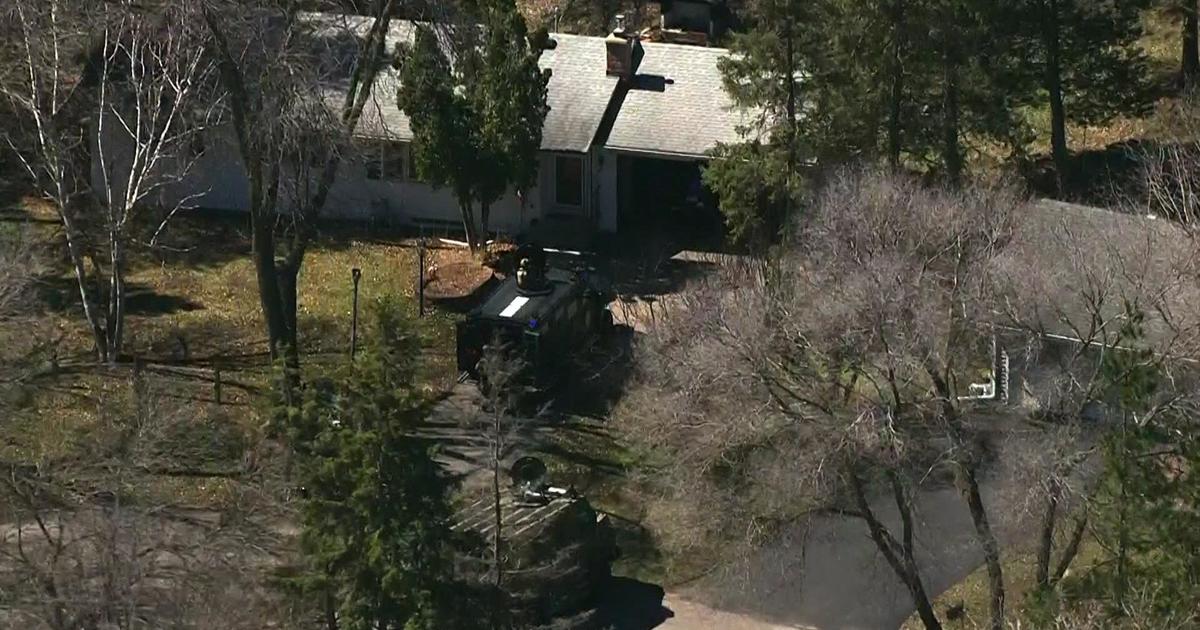Derek Chauvin Guilty On All 3 Counts In George Floyd's Death
MINNEAPOLIS (WCCO) -- Following nearly a year of protest, introspection and raw emotion, former Minneapolis officer Derek Chauvin, who last May held a knee down on George Floyd's neck for more than 9 minutes, has been found guilty of second-degree murder and two other charges in Floyd's death.
Chauvin has been remanded to the custody of Hennepin County. He was led out of the courtroom in handcuffs.
The Minnesota Department of Corrections says Chauvin was booked into Minnesota Correctional Facility-Oak Park Heights just before 5 p.m., as part of an agreement with the Hennepin County Sheriff's Office.
According to a pool report, George Floyd'sbrother, Philonise Floyd, was praying in the courtroom before the verdict was read.
"I was just praying they would find him guilty," he said after the conviction. "As an African American, we usually never get justice."
Family members of George Floyd, along with attorney Ben Crump and Rev. Al Sharpton, held a press conference about an hour after the verdict was read. Sharpton first led a prayer with the family.
"Let's lean into this moment and let's make sure that this moment will be documented for our children as they continue on the journey to justice knowing that the blood of George Floyd will give them a trail to find a way to a better America," Crump said.
The verdict was read in Hennepin County court just after 4 p.m. Tuesday. In addition to the second-degree murder conviction, the jury found Chauvin guilty of third-degree murder and second-degree manslaughter.
In a statement, Gov. Tim Walz called Chauvin's conviction "an important step forward for justice in Minnesota."
"George Floyd mattered. He was loved by his family and his friends," Attorney General Keith Ellison said at a press conference Tuesday afternoon. "But that isn't why he mattered. He mattered because he was a human being. And there is no way that we can turn away from that reality."
President Joe Biden and Vice President Kamala Harris spoke Tuesday evening on Chauvin's conviction.
Darnella Frazier, who recorded the video of Floyd's death that spread quickly online on May 25, 2020, wrote on Facebook that "justice has been served."
In a statement released Tuesday evening, Minneapolis Police Chief Medaria Arradondo -- who fired Chauvin one day after Floyd's death, and testified against him in his trial -- thanked the jurors for "their immense responsibility and honorable civic duty." He also called for peace and calm.
"Now is the time to use our humanity to lift each other up and not tear our City down," Arradondo said.
It took the jury roughly 10 hours of deliberation to reach their verdict -- about four hours Monday afternoon and evening, and another six hours Tuesday starting at 8 a.m.
Chauvin was convicted on the following charges:
- Second-degree unintentional murder means causing death without intent by committing a felony.
- Second-degree manslaughter is causing death by unreasonable risk.
- Third-degree murder means causing death by an "eminently dangerous" act, showing a "depraved mind."
Earlier Tuesday, WCCO's Esme Murphy reported that Hennepin County court employees were notified to stop working at all downtown courthouse locations and to "exit downtown immediately."
Public safety officials said there would be no statewide curfew Tuesday night. Following Chauvin's conviction, crowds gathered at the Hennepin County Government Center, George Floyd Square at 38th and Chicago and in Brooklyn Center, where 20-year-old Daunte Wright was shot and killed by police in the middle of Chauvin's trial.
The maximum penalty on second-degree murder charges is up to 40 years in prison, and the third-degree murder charges carries a sentence of up to 25 years in prison. The maximum penalty on second-degree manslaughter is up to 10 years in prison.
Judge Peter Cahill said sentencing will take place in about eight weeks.
The jurors heard closing arguments in the trial of Derek Chauvin Monday. The two sides split most significantly on the cause of death. The prosecution argued that all the law requires is that the prosecution prove beyond a reasonable doubt is that Chauvin's knee restraint was a "substantial cause" of Floyd's death.
The defense stressed that Chauvin did what any reasonable officer would have done and said it was wrong to look only at nine minutes and 29 seconds when Floyd was on the ground.
In a departure from how he has looked throughout the trial, Chauvin was maskless and looked directly at his attorney throughout the three-hour defense closing statement. For the rest of the testimony and the prosecution closing he was head down, masked and taking extensive notes.
While Nelson's summation was lengthy, it was also complex. And that may be why Blackwell came back with this statement in his rebuttal argument. He said this case is not that complicated and that, in the state's view, Chauvin caused Floyd's death.
The line he left the jury with was this: "You were told, for example, that Mr. Floyd died because his heart was too big. You heard that testimony. And now having seen all the evidence, having heard all the evidence, you know the truth. And the truth of the matter is that the reason George Floyd is dead is because Mr. Chauvin's heart was too small."
Since the trial began last month, the prosecution called 38 people. The defense called seven people to testify in court. Chauvin was not one of them; he invoked his constitutional right not to testify. It was a decision that came without the jury present.
Now that Chauvin has been convicted, next comes the determination about whether any aggravating factors existed.
The first possible aggravating factor is whether the victim was "treated with particular cruelty." The second is if a child was present. Witnesses at the scene and who testified included two teens who were 17 at the time, as well as a 9-year-old.
"If they find aggravating factors the judge could go all the way up to the statutory maximum, which for count one is up to 40 years, count two up to 25 years, and count three up to 10 years," attorney Joe Tamburino told WCCO.
The other three officers involved are charged with aiding and abetting, and are expected to be tried jointly in August.
Earl Gray, the attorney representing ex-officer Thomas Lane, told WCCO he had no comment on Chauvin's conviction.



